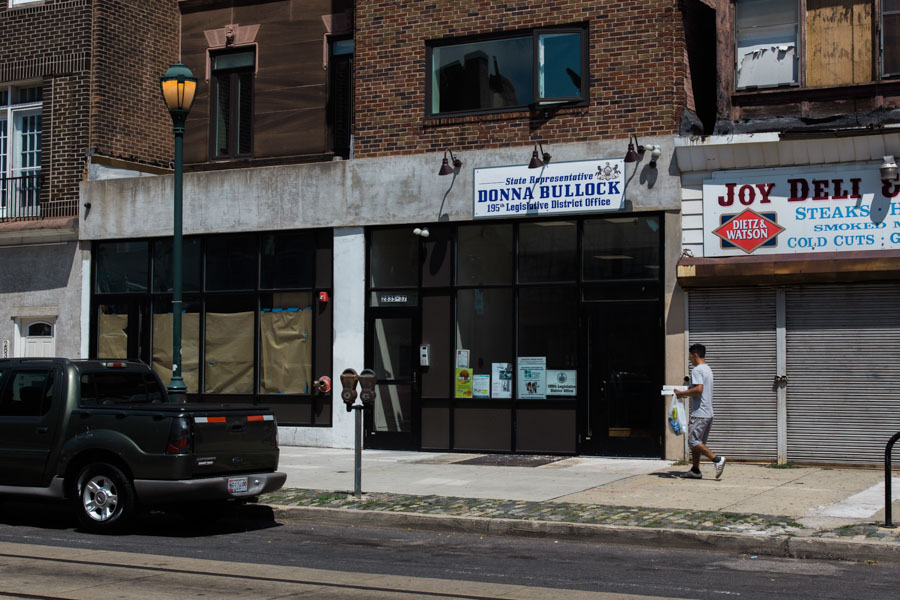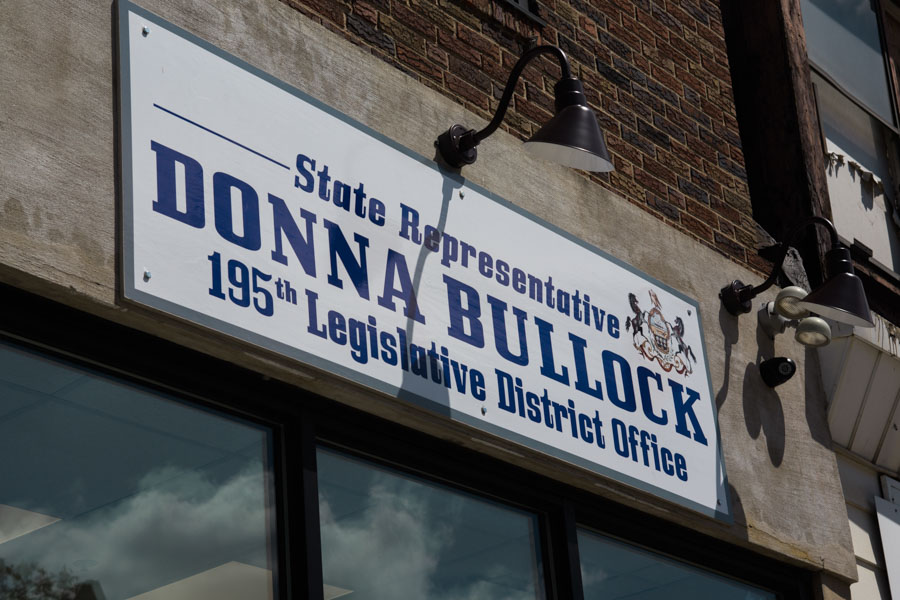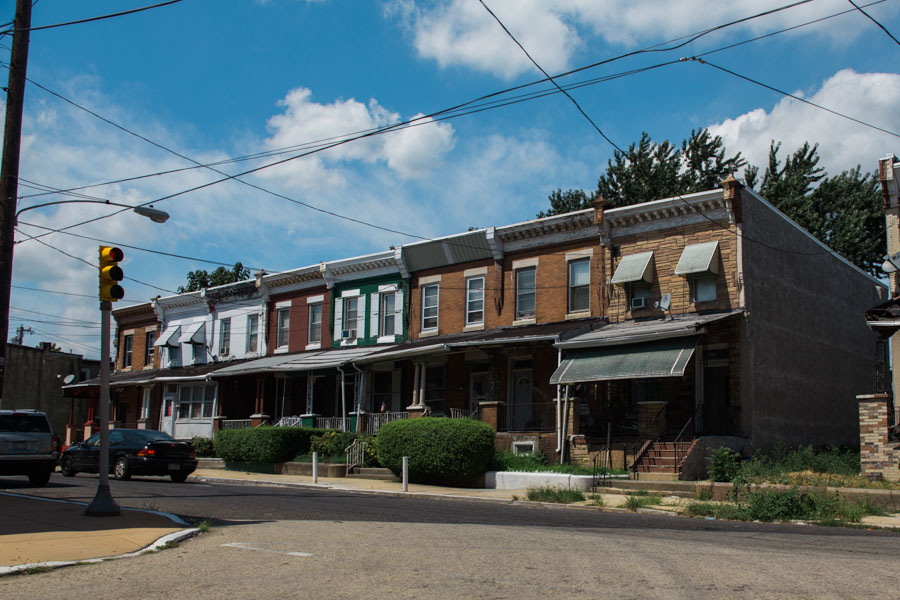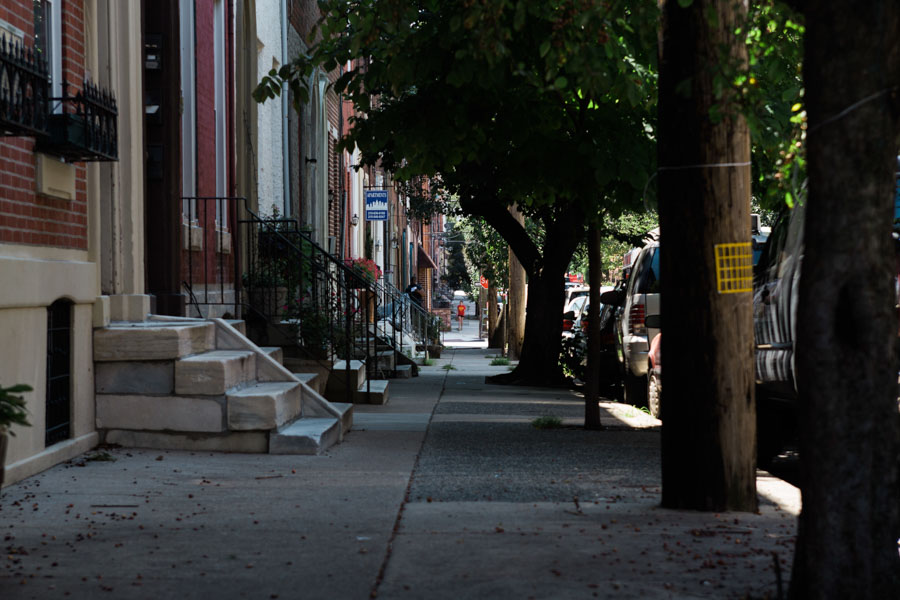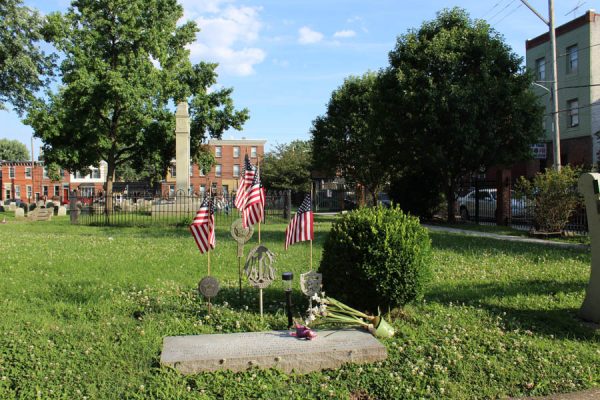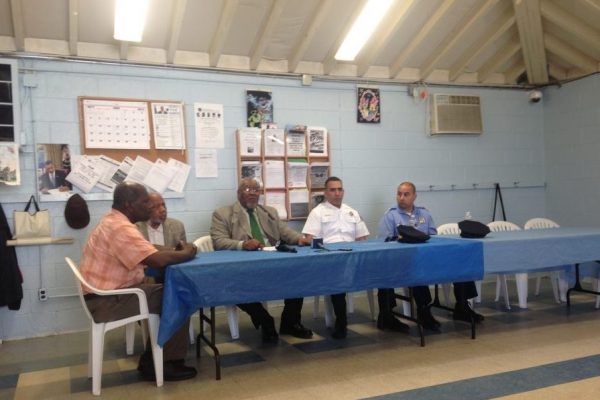PA State Rep. Donna Bullock’s Fight For Fair Chance Housing Legislation
In July, 195th PA District Rep. Donna Bullock hosted a Democratic Policy Committee hearing on Fair Chance Housing legislation. The hearing was co-chaired by House Democratic Policy Chairman Mike Sturla.
The issue discussed was whether or not landlords can ask potential tenants about their prior criminal history. This is common practice for many landlords and Bullock says this is a city-wide problem.
“It’s not limited to the district; it’s a separate issue we see across Philadelphia,” Bullock said. Bullock’s district covers areas of Brewerytown and Strawberry Mansion.
According to Rep. Bullock, changes at the federal level to the U.S Department of Housing and Urban Development now prohibit them from asking about criminal histories for people seeking housing.
Rep. Bullock said a major issue is that commercial background checks that many landlords use can find information not only from a person’s conviction record, but also information on that person’s arrest record. She also says summary offenses as well as charges that were later dropped or expunged may be visible to landlords, leaving further potential for discrimination.
“Often times those records could come up in a background check for a landlord,” Bullock said. “It really prevents individuals who are returning to our communities, or maybe never left because all they did was get arrested or [an] arrest record, but not an actual conviction…It’s just another obstacle for people trying to get back on their feet.”
According to Rep. Bullock, African Americans and Latinos are faced with a racially biased criminal-justice system. She says this leads individuals to be vulnerable to discriminatory housing practices as they try to rejoin society. “Disproportionately [minorities] are also affected by the aftereffects of that, housing, employment, access benefits or even financial aid,” Bullock said.
Unfortunately, housing bias against minorities is nothing new. A Washington Post article from January 2016 discusses a test conducted in 1972, in which two people sought to rent an apartment in a building in New York City that was managed by current Republican Presidential candidate Donald J. Trump’s real estate company.
According to the article, two “government-sanctioned testers” were sent to apply to lease apartments at the Shorehaven apartment building in Brooklyn. The testers were women, one white, one African American. According to the article, when the African American woman attempted to lease an apartment, she was told “none were available.” Later, the white tester applied at the same building, and was given the choice of two available apartments.
According to the Washington Post, federal investigators discovered Trump employees had marked certain applications with a “C” for “colored.” According to the article, the Justice Department filed a Civil Rights suit against Trump’s organization, accusing him of violating the 1968 Fair Housing Act.
Trump retained legal counsel from Roy Cohn, who was a top aide to Sen. Joe McCarthy during his communist witch hunt in the 1950s. The suit was eventually settled, and the Trump organization was forced to take action to ensure that they employed racially fair tactics for all applicants seeking apartments in any Trump-managed building.
The Washington Post article does not state whether the two women had criminal records, but it does show that there was racial bias in this instance. If the system already has an implicit racial bias, adding a criminal conviction to the application will most likely make that applicant less likely to receive housing.
Rep. Bullock has pointed out that representatives from the Homeowners Association of Philadelphia were initially hesitant about the legislation, but have become supportive after hearing that certain limitations to the legislation will apply. “This will give landlords some comfort in the fact that if it’s a certain felony or a recent felony then the landlord can make the decision,” Bullock said.
Rep. Bullock is still seeking co-sponsors from her colleagues in Harrisburg. She says she has the support of other Fair Chance Housing advocates, and according to her the legislation will be introduced in September when the PA House is back in session. Bullock wants to ease the transition for people who have paid their debt to society, and end discriminatory housing practices for everyone who just wants a place to live.
“It’s another hurdle for folks who are trying to be contributing members of our community. If someone cannot find housing, someone cannot find employment, their options are limited,” Bullock said. “These folks are our family and friends and our neighbors, and we need to be able to eliminate those obstacles so they can be contributing members of our community.”
It’s easy to compare this housing-application practice with how companies require job applicants to check a box if they’ve ever been convicted of a crime. In some instances, an acknowledgement of past criminal convictions may require further description by the applicant, which some people argue leads to a bias in the hiring practice.
A 2009 study of potential bias in hiring practices between equally qualified young African American and white males in New York City was cited in a 2015 NBC News report. The experiment created two teams matched on every possible detail that could make them equal.
The report says the subjects were matched on physical attractiveness, eye contact, verbosity and demeanor. Each team had two members with equal resumes; however, one member of each team was instructed to say they had just been released from prison after serving 18 months for a possession with intent to distribute cocaine.
The study concluded that applicants who admitted to having a prior drug felony were 50 percent less likely to be hired. According to this study, African Americans were nearly twice as likely to not be hired than white candidates who admitted to having the same felony.
The belief is that even though many job applications state that prior convictions do not immediately rule out the candidate, there is an implicit bias based on the fact that employers would most likely be less apt to hire a person with a criminal record than one without.
This led to an initiative in Philadelphia called “Ban the Box,” referring to the box one would check on an application if one had a prior conviction. According to www.phila.gov, the law was implemented in 2011, and prevented employers from asking questions regarding convictions until after the first interview. In 2016, the law was revised, and though some concessions were made to the employers, most of the revisions benefit potential job seekers who had prior arrests. •
